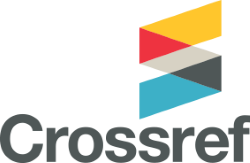Publication Ethics Statement
Publication Ethics and Malpractice Jurnal Epidemiologi Kesehatan Indonesia
In dealing with cases in research and publication, Jurnal Epidemiologi Kesehatan Indonesia uses guidelines issued by the Committee on Publication Ethics (Commission of Publication Ethics/COPE) in all aspects of publication ethics, in particular, protocols of research and publication misconduct. Jurnal Epidemiologi Kesehatan Indonesia requires all articles involving human subjects to respect the principles of research ethics as stated in the Declaration of Helsinki. Research involving animals as subjects are also required to comply with the International Principles for Biomedical Research issued by the International Council of Organizations of Medical Sciences (CIOMS).
For research manuscript involving experiments on live vertebrates and/or higher invertebrates, the corresponding authors must be confirm that all experiments were performed in accordance with relevant guidelines and regulations. The manuscript must include a statement identifying the institute and/or licensing committee approving the experiments, including any relevant details. Manuscripts that lack proper ethical consideration for human or animal subjects will not be accepted for publication.
For experiments that involve human subjects, the authors must identify the committee which approved the experiments and their submission must include statement confirming that informed consent was obtained from all subjects. Authors using phase II and phase III randomized controlled trials in their study should refer to the CONSORT Statement for recommendations which facilitates complete and transparent reporting of trial findings.
All animal experiments must adhere to institutional and national guidelines for the care and use of animal subjects, and this should be clearly stated within the manuscript. Manuscripts should contain a statement that advises all efforts were made to minimise animal suffering and reduce the number of animals used, and if available, efforts to utilise alternatives to in-vivo techniques.
As an important issue, ethical publication should be clear in order to improve the quality of research. Jurnal Epidemiologi Kesehatan Indonesia adjust to meet the ethical standards both for publishers, editors, authors, and reviewers. In order to uphold these ethical standards, the publisher does not have the rights to interfere with the integrity of the contents and the only support to publish in a timely manner.
Here are the ethical standards for editors, authors, and reviewers.
Editors
- The Editor is responsible for every article published in Jurnal Epidemiologi Kesehatan Indonesia
- Editor helps the authors follow the guidelines for authors
- The editors may communicate with other editors or reviewers in making a final decision.
- Editor assess the manuscript publication objectively, regardless the author's racial background, religion, gender, seniority, ethnicity, political beliefs, institutional affiliation or nationality. The editor must relinquish his/her duties if there is a potential conflict of interest.
- The Editor must ensure that the document which is sent to the reviewers do not contain information on the author and vice versa.
- The editor's decision must be notified to the author along with the reviewers' comments, except which contain offensive or libelous statements.
- Editors should respect the request of the author that the order is not subject to review by any other person for any reason.
- Editor and all staff must ensure the confidentiality of the submitted manuscript.
- If there is a suspicion of error or dispute in writing, Editor solves it by using the COPE as guide.
Reviewers
- Reviewers comment on the possibility of errors in ethical research and publications.
- Reviewers should complete the job on time and notify the Editor if they cannot finish the job.
- Reviewers must maintain the confidentiality of the manuscript.
- Reviewers should not be receiving and reviewing the manuscript if there is a potential conflict of interest between them and the authors.
Authors
- The author ensures that the material to be published have not been published and sent to another place simultaneously
- Authors must ensure the authenticity of their research and they have cited the others opinions correctly in accordance with the reference format.
- The author is not involved in plagiarism.
- 'Salami' publication is prohibited in Jurnal Epidemiologi Kesehatan Indonesia
- Authors must follow the criteria described in the writing guideline for the authors of Jurnal Epidemiologi Kesehatan Indonesia.
- Authors are not advised to publish any personal information that may make identity of the patient recognizable in the form of the description section, photograph or genealogy. If photographs of patients are very important and indispensable as scientific information, the authors should have received approval in written form and has clearly stated it.
- In the case of experiments on humans, the authors state that the study was in accordance with the ethical standards of the Helsinki declaration, which leads the human experiment. If there are doubts raised whether the study took place in accordance with the declaration, the author should explain it. In the case of experiments on animals, the author has certified that the author has followed the guidelines and abroad with regard to animal experiments in the laboratory.
- Authors must submit the data and details to the editor, if suspected falsification or fabrication of data.
The authors should explain everything that can give rise to a conflict of interest such as employment, research costs, consulting fees, and intellectual property on guidelines for Jurnal Epidemiologi Kesehatan Indonesia authors.






